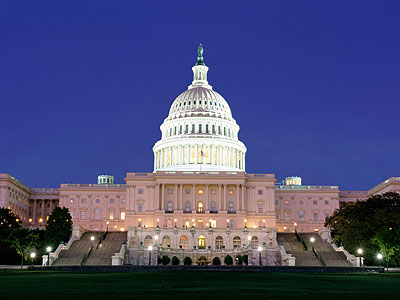 Our Congress is really a piece of work when it comes to national security. In 2011, President Obama announced that he could go to war against Libya without congressional approval. Congress hemmed and hawed, but in the end was unable to agree to do anything about it. Two years later members of Congress were vocal about Obama’s lack of action against Syria when it was revealed that the Assad regime had been using chemical weapons. Obama eventually responded and asked Congress for approval to take military action. Congress did nothing. Now we have yet another war, this time against ISIS, and Obama asked for congressional approval months ago. Result: nothing. Members of Congress would rather be free to lambaste Obama on the campaign trail than to actually commit themselves to a strategy.
Our Congress is really a piece of work when it comes to national security. In 2011, President Obama announced that he could go to war against Libya without congressional approval. Congress hemmed and hawed, but in the end was unable to agree to do anything about it. Two years later members of Congress were vocal about Obama’s lack of action against Syria when it was revealed that the Assad regime had been using chemical weapons. Obama eventually responded and asked Congress for approval to take military action. Congress did nothing. Now we have yet another war, this time against ISIS, and Obama asked for congressional approval months ago. Result: nothing. Members of Congress would rather be free to lambaste Obama on the campaign trail than to actually commit themselves to a strategy.
So now what? HuffPo’s Jennifer Bendery reports that Rep. Barbara Lee (D–Calif.) added a clause to the 2016 defense spending bill stating that “Congress has a constitutional duty to debate and determine whether or not to authorize the use of military force” against ISIS. It passed, but only barely. Steve Benen is acerbic:
Right. So, the Obama administration launched airstrikes in August 2014. The president called on Congress to authorize the mission in December 2014. Obama devoted part of his State of the Union address to this in January 2015. The White House even sent draft legislative language to Capitol Hill in February 2015.
And in June 2015, a committee was willing to endorse a non-binding measure that said Congress really should, someday, do something to meet its constitutional obligations.
That’s it. That’s as far as lawmakers have been willing to go.
Indeed, much the committee didn’t even want to even go this far. When Barbara Lee urged members to support her proposal, the committee chairman held a voice vote and deemed it defeated. When Lee insisted on a roll call, it passed 29 to 22, overcoming Republican opposition. (All 22 “no” votes came from GOP members.)
In other words, nearly half the committee wasn’t even willing to go this far.
Ladies and gentlemen, this is your Congress. Makes you proud to be an American, doesn’t it?

















